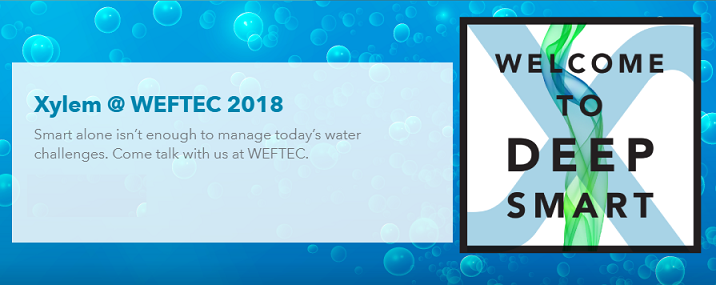Xylem looks at opportunities in emerging Asian and Middle East markets
- September 18, 2018
- Posted by: administrator
- Category: Conferences, Asia

Ahead of WEFTEC 2018 where Xylem is among 1000+ exhibitors, Alison Ireland, WaterBriefing Global Associate Reporter, talked to Steve Leung, Xylem’s President of Emerging Markets at about opportunities in emerging markets.
Alison Ireland at Singapore International Water Week: Based out of Singapore, Steve Leung sees these as mainly Asian ones, with the major ones being China, India and the Middle East, followed by SE Asia, Korea, Japan and Australia. The current plethora of infrastructure projects in these regions represent good opportunities for Xylem; in terms of manufacturing, they now have two plants in China, one plant in India, and another factory in Dubai.
Having supply close to the market means they can customise products easily to suit a variety of local applications. It also has the benefit of assisting Xylem with their sustainability goals, by using local resources to fulfil local needs, cutting down on transport.
Xylem has a strong suit in smart technology following acquisitions of Sensus and Pure Technologies, and Leung commented that it is sometimes easier to sell new and smart technology in emerging markets than in established ones with old infrastructure which can in fact serve as a restrictive force.
He made the analogy with the take up of mobile phones: these have found almost more of an appetite in developing countries where many people didn’t have existing landlines, but were able to quickly adopt mobiles; in China, banking is now largely done on phones without the need for bricks and mortar infrastructure.
Approaching municipal markets with their traditional strength, and industrial markets such as power plants and refineries in China, agriculture in India with water transport needs, Xylem are prepared to adapt their business model in order to win contracts and suit local needs, sometimes for example with leak detection, agreeing a percentage payment and results-based profit share model as with a small project in China with local government initiative.
The equipment-rental model has also been used recently in the Philippines for mining dewatering and flood mitigation, and also in Dubai in the last two years.
With eyes also on smaller countries such as Vietnam, Myanmar, Sri Lanka and Bangladesh, and northern Africa to boot, Leung sees the greatest challenge in emerging markets as people.
Compared with Europe and the US, the industry legacy is not there and it is rarely possible to recruit senior staff locally with 20-40 years experience. Xylem is taking head-on the challenge of building stronger talent, and attempting to sustainably build capabilities with several professional development training programmes for employees.
Xylem put some effort into making a big splash in Singapore where it announced a new partnership with Manchester City football club. An unusual concept the main thrust of the partnership seems to be a fairly traditional team sponsorship one, but the interesting part is the idea of using the Xylem Watermark social investment program part of the business, to promote activities such as building water towers in water-poor communities around the world to a huge audience which would not normally be aware of these kinds of activities.
In terms of marketing, it may prove to be a smart move and we will watch their Asian progress with interest.
Alison Ireland will be attending the upcoming WEFTEC 2018 show for WaterBriefingGlobal which takes place in New Orleans USA from 29th September to 3rd October 2018.
